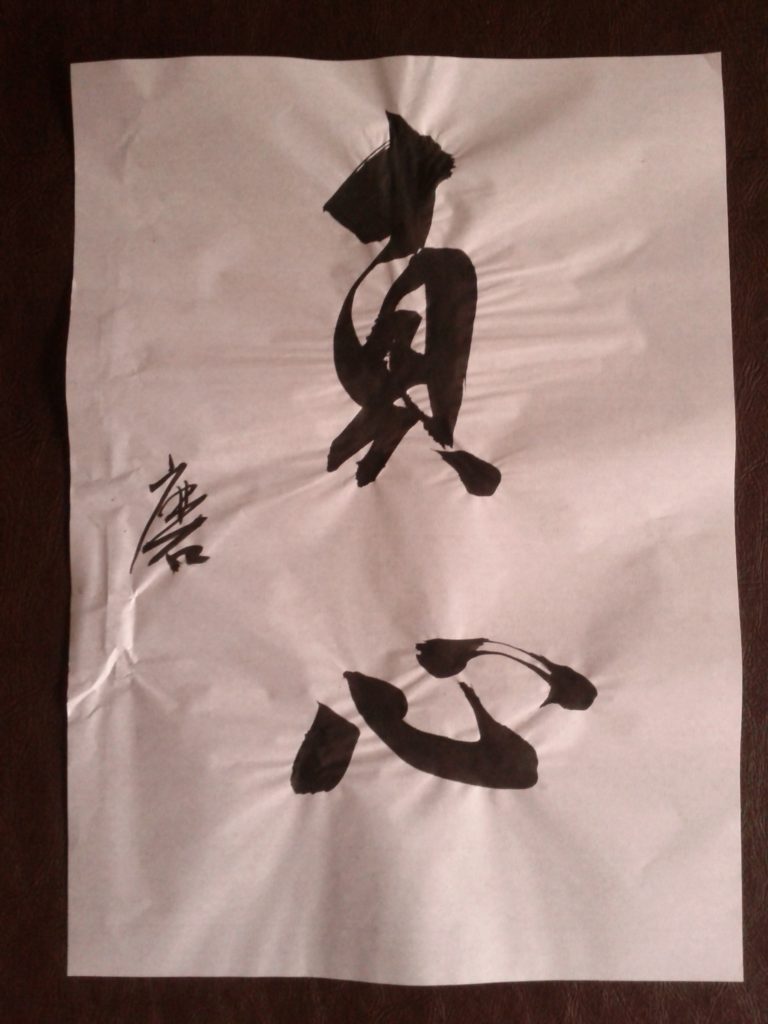Shihan Paul Masse recently taught an awesome martial arts seminar in Birmingham.
He talked about several martial arts concepts, but really emphasized the concept of connection.
“Cherish your connections!” he said.
As with everything in budo, there are multiple layers to what is taught and practiced.
Shihan Masse’s statement for us to cherish our connections is not only in terms of our connections to our friends, family, and colleagues, but also our connections to our opponents.
Daily Life Connections
The message as it relates to connection in terms of your relationships with the people in your life may seem quite obvious on the surface. But as you already know, surface value (or “face value”) is not always representative of the true substance underneath. Thus there is the saying about not judging a book by it’s cover. This is also connected to kyojitsu tenkan ho (the connection between perception and reality; falsehood and truth).
One of the most important reasons that you study budo is to strengthen your connection to reality. Your connection to the Truth. Connecting to the truth of things requires magokoro (sincerity).
This doesn’t necessarily mean not lying to others. It means not lying to yourself.

Connection or Attachment?
What’s the difference?
Your connections enrich, strengthen, and improve your life. Your connections are based on and live in the space of freedom.
Attachments are different. Attachments enslave you.
For example: the difference between keeping a romantic relationship because you love and enjoy sharing your life with your partner through your connection to each other…
or
…keeping a relationship with someone that isn’t the best match for you because of a fear of being alone.
Do you enjoy a coffee now and then (connection), or are you addicted to caffeine (attachment)?
Be sincere with yourself and take appropriate action.
The Combat Connection
There are several ways this relates to your training. Here are just a few:
- Technique: Sticking to the prescribed form of a technique no matter what is actually changing with the opponent or environment is an attachment and could get you killed. You have to stay connected to the timing of change as Shihan Masse said a few times. Stay connected to the changes so that you can change with them and survive. This takes training and practice.
- Weapons: When you first begin training with weapons, the tendency is to focus solely on using the weapon. The weapon is all you see, so in turn, you miss the changes and lose your connection to your taijutsu. Keep yourself connected to your taijutsu, then naturally, the weapon also becomes connected to your taijutsu. Then you survive. Again, this takes training and practice.
- The opponent: Being connected to your opponent will let you change as needed and survive. When you’re attached to your opponent, you try to force control over him; try to force a technique. When you are connected to your opponent, he tells you everything you need to know about his intentions. This is connected to how Hatsumi-soke uses his sight and vision during a technique. Once Hatsumi-soke is connected to his opponent, he doesn’t need to look at him.
To reiterate Shihan Masse’s message, “Cherish your connections!”
In combat, your connection to your opponent can save your life. And your personal connections to those you love make your life worth living.
Please share your thoughts in the comments.
PS. Many thanks to Shihan Masse for coming out and teaching! Also, thank you to Shidoshi Jerry Wideman for hosting the seminar. And finally thank you to everyone that came out and trained.

I agree; good connections are blessings that enrich our lives, but they are also curses waiting to happen if we aren’t diligent. When you turn your attention toward your blessings and give them more importance than they deserve, that’s when they become attachments. You’ve got to keep your priorities straight. To use some of your examples, a relationship can be a blessing – a wonderful connection – but if you give it a higher place in your life than it deserves, it becomes a harmful attachment. The same can be done on the negative end of things. If you dwell on some wrong that was done to you, you become attached to it and hurt yourself more than the person who wronged you.
As far as training application goes, all three of your points are excellent ones that definitely take a lot of practice, particularly the connection to the opponent, in my opinion. Connection to weapons and to the technique seem to fall mostly on the individual level, but to connect to the opponent is to be in dialogue with him or her. An attachment to them is easy, because it’s just you projected yourself and your will onto them with no regard for what they’re telling you. But to connect with them… That’s the tricky part. You have to open yourself up to what they give you, while still standing your ground. It’s like a debate: You have to listen to what the other person says in order to give the most effective response, but you can’t let their arguments overrun yours.
I’m enjoying the blog posts. They make me think. 🙂 Good job.